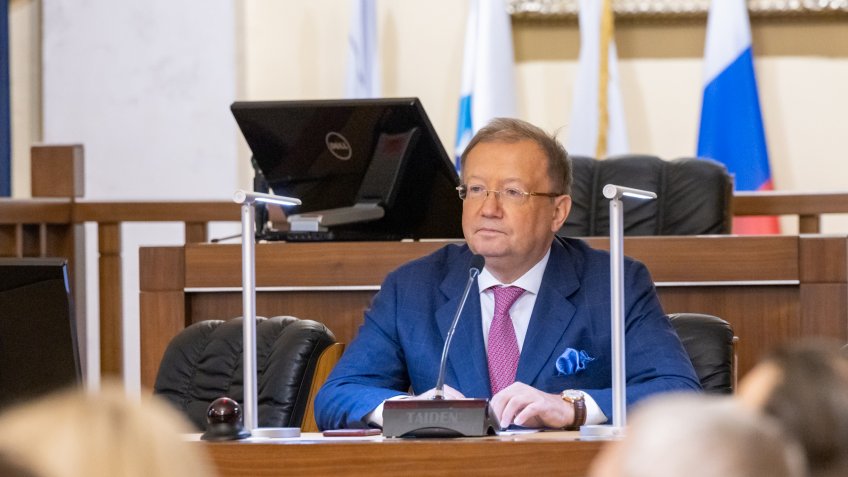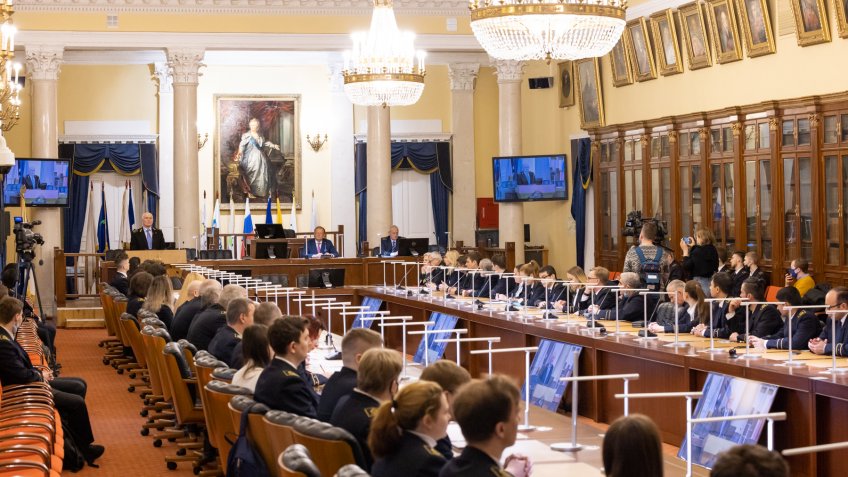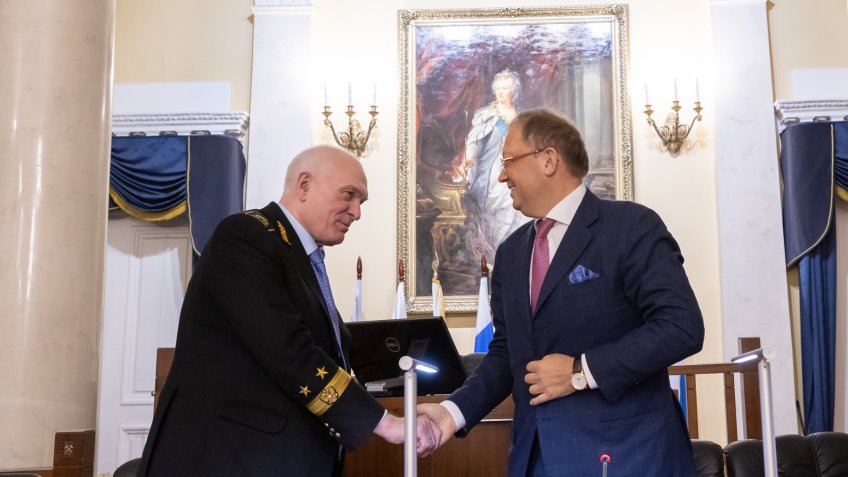
St. Petersburg Mining University hosted a meeting of students, graduate students, and faculty with Alexander Yakovenko, Rector of the Diplomatic Academy of the Ministry of Foreign Affairs, Ambassador Extraordinary and Plenipotentiary of Russia to the UK in 2011-2019. The almost two-hour conversation on all aspects of international relations was conducted in the mode of frank dialogue. Western relations with Russia, described by Yakovenko himself in a recent article as approaching a crisis comparable to the Caribbean, the politicization of economic relations between the countries and the “green agenda”, events in Kazakhstan - these are just some of the topics touched upon.
“Everything we see today with regard to NATO is a product of the strategy and policy of Western states for many years. To date, Russia has firmly raised the question of its national interests and outlined the tasks that we would like to solve in terms of ensuring our security. We believe that NATO should not expand, that is the first thing. And second, the most key issue: the security of some countries must not be ensured at the expense of the security of others. Yes, it is a struggle, it is fierce competition, but it is based on national interests. At present any enlargement of NATO contradicts Russia’s national interests and one should act tough here,” Yakovenko said, answering the question about possible compromises on the part of Russia during the negotiations concerning legal guarantees for stopping the North Atlantic bloc's advance to the East.
At the same time, the diplomat stressed that Russia’s foreign policy activities are not limited to relations with Western countries, which currently dominate the information agenda. The West is comprised of only 33 countries, while 193 countries are members of the United Nations, and cooperation with most of them is improving. The ambassador noted a trend toward regionalization of world politics, linked in part to the disappointment in the globalization course of Europe and the United States, as China began to win in the global world. They could not ignore the economy, which is increasingly affected by political ambitions. An obvious example here is the situation around the Nord Stream-2 pipeline, which has already led to an explosive increase in the cost of gas and electricity in European countries. Just as dangerous for the economy was in recent past Germany’s political decision to abandon nuclear power, which accounted for 45 per cent of the country’s energy balance.
As the Rector of Mining University Vladimir Litvinenko emphasized, expanding the foreign policy outlook of future mineral engineers is extremely important, at the very least because the struggle for natural resources plays a key role in the global economy and politics. Future miners must understand the importance of their work and the measure of responsibility from this perspective as well. That is why the cooperation between Mining University and the Diplomatic Academy must become closer.

